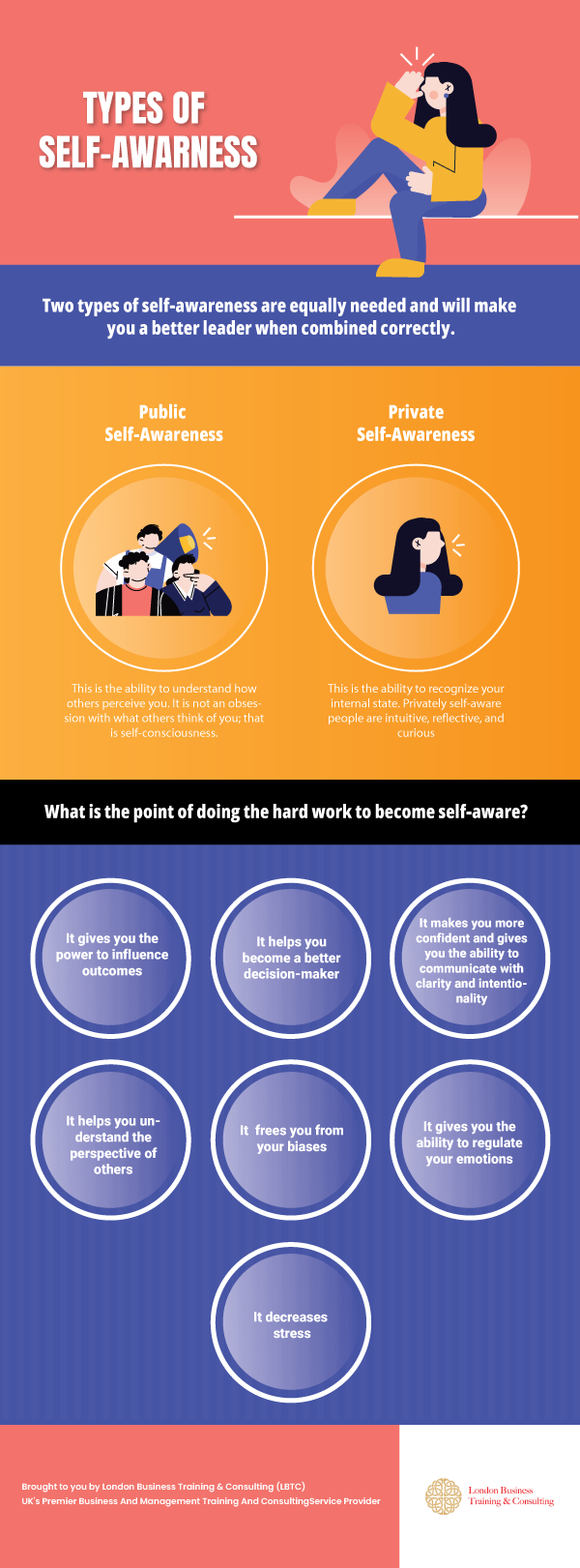
In a meeting, one of your employees made a casual comment that shocked you right away. Your shoulders and jaw tense, and a knot in your gut descends to the pit of your stomach. You may be wondering why that passing remark bothers me so much. You are too preoccupied with your thoughts to hear the rest of the discourse. Why did she just say that? Why are you feeling so angry? How will you manage this in the future? Should you even address everything? Hearing your name and realizing everyone in the conference room is looking at you and waiting for you to respond jolts you out of your internal monologue. You’re not fully sure what the inquiry was about or what details they require.
You are not alone if you have experienced something similar to the event described. Many leaders would even regard their capacity to perceive a fundamental fight-or-flight response as evidence of self-awareness. The leader mentioned before recognized a remark that disturbed them. They connected the tightness they could feel in their bodies with rage. Like the majority of executives in corporate America, the leader in question may even be proud of themselves for controlling their feelings and deciding to assess the matter afterwards. However, this does not represent a full grasp of self-awareness.
What does self-awareness mean?
Self-awareness is the capacity to assess oneself, control one’s emotions, and match one’s actions with one’s moral principles. In order to modify their direction or reach decisions that are consistent with their values or belief system, self-aware persons can objectively interpret their thoughts, feelings, and behaviors. Only 10% to 15% of people have true self-awareness, which is a rare quality.
Self-Awareness Comes in Two Forms
Two different kinds of self-awareness are equally important and, when properly integrated, will improve your leadership abilities.
Public self-awareness: This is the capacity to recognize how you are viewed by others. Obsession with what other people think of you is not this; that is self-consciousness. Public self-awareness enables you to judge whether other people perceive the real you and whether they can infer your internal standards from your behavior. If you see compassion as one of your highest ideals but use aggressive leadership, criticizing your team members for errors, you are not being honest with yourself.
Private Self-Awareness: This is the capacity to discern your inner state. People who are privately self-aware are perceptive, thoughtful, and inquiring. You can clarify your thoughts, emotions, and values, as well as your own values and strengths, by developing your private self-awareness. Making healthy connections with others requires self-awareness. When your inner and outer selves are in sync, you can lead with compassion, work to empower others, and promote teamwork.
Tips for becoming a self-aware leader
- Recognize Your Mood: Giving a name to an emotion gives it power. It is the starting point for emotional control. By giving anything a name, you gain control over it, and mastering the art of naming your emotions prevents them from taking control of you instead of the other way around. Inappropriate behavior is not justified.
- Pay Attention to Your Physiological State: Your body is constantly attempting to communicate with you, but are you listening? Stress symptoms are all physiological. Do a “body scan” throughout the day. Beginning with your toes, mentally examine your entire body, paying attention to anything that seems “wrong.” Take stock of the events or experiences that make you feel comfortable, at ease, or excited at the same time that you become aware of unpleasant physical feelings.
- Identify Your Ideas: In our quest for self-awareness, many of us get stuck here since your thoughts shape your responses and serve as the foundation for your emotional outbursts. Recurrent ideas reveal a fundamental conviction that influences how you see yourself and other people, which influences your behaviors and decisions. Understanding your triggers and the reasons for your reactions stems from identifying negative thoughts that keep popping into your head.When you regularly evaluate yourself, though, you can spot the idea and alter the pattern when it arises.
The Advantages of Self-Awareness
What is the point of putting in the effort to develop self-awareness?
- It helps you become a better decision-maker
- It boosts your self-assurance and equips you with the capacity for intentional and concise communication
- It assists you in comprehending others’ viewpoints
- You are liberated from your biases
- The capacity to control your emotions is one of its benefits
- It reduces stress.
For more information on the leadership course and to acquire additional skills that will help you become the best leader you can be, get in touch with Front Line Leadership.
For more information, be sure to view the infographic


Leave a Reply